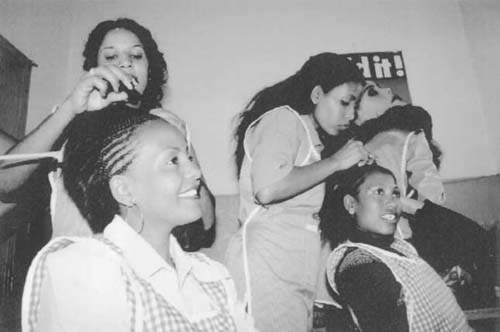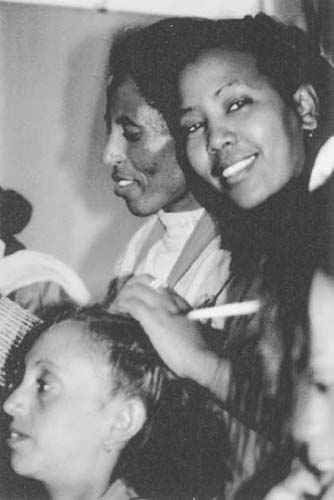Japan's Official Development Assistance White Paper 2006
Column II-6 Basic Training Project for Social Reintegration of Demobilized Soldiers in Eritrea
Eritrea is located in East Africa. It is the newest country in Africa, gaining its independence from Ethiopia in 1993 through a war of independence which lasted for about 30 years. It has also experienced border conflicts with Ethiopia after independence for three years starting in 1998. As a result, there are approximately 300,000 soldiers in Eritrea (approximately 100,000 of them are women), out of a population of 4.3 million.
The demobilization of soldiers and their smooth reintegration into society is important for Eritrea's development. After the country signed a peace accord with Ethiopia in December 2000, Japan offered Eritrea food assistance, cooperation in the areas of basic human needs and infrastructure improvement, along with support for the demobilization and reintegration of soldiers. As an example of these initiatives, Japan is cooperating with the World Bank to support the Demobilization and Reintegration Program for soldiers. The demobilization process began in 2002, with the total demobilization of approximately 100,000 people already completed by June 2005.
Vocational training is an urgent task for demobilized soldiers to smoothly reintegrate into society. Young demobilized soldiers in particular have no work experience and have not received sufficient education, making it difficult for them to find jobs after demobilization. Japan is cooperating with organizations including the World Bank in the Project on Basic Training for Reintegration of Demobilized Soldiers. Through this, a total of 157 former soldiers have received vocational training. The following shows one of the courses provided as part of the training.
Beautician Training Course
As the Japan's project executing agency, the Japan International Cooperation Agency (JICA) implemented a survey on issues including the employment trends and situation in the capital of Asmara, focusing on women. The results indicated an expanding market demand for beauticians and strong potential opportunities for employment and the start up of businesses. Also, JICA has learned that the two training schools for beauticians in the city had the ability and intention to implement vocational training courses sought by the project, and that both schools show high employment rates of their graduate students. Based on these, the two schools entered into contracts for the project.

A scene at the beautician training course (Photo: JICA)
Lecturers for training beauticians were dispatched from Japan, and provided three months of training in these training schools. The employment survey conducted three months after the completion of the course indicated that over 70% of the graduates were either working in the related areas or starting up their own businesses, and that almost all of them were satisfied with their work. These experiences are expected to contribute to the further enhancement of future vocational training courses, as the project staff build up their know-how on launching training schemes such as recruiting and screening students and organizing curriculums.
These activities represent day-to-day patient efforts dedicated to demobilized soldiers for their prompt reintegration into society.

(Photo: JICA)

